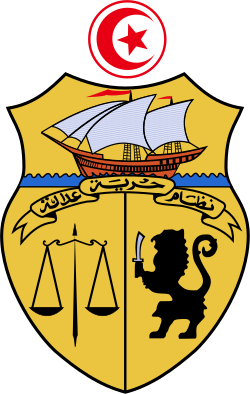You can help expand this article with text translated from the corresponding article in Arabic. (December 2024)Click [show] for important translation instructions.
|
Mechichi Cabinet | |
|---|---|
| Cabinet of Tunisia | |
| Date formed | 2 September 2020 |
| Date dissolved | 25 July 2021 (10 months and 23 days) |
| People and organisations | |
| Head of state | Kais Saied |
| Head of government | Hichem Mechichi |
| Total no. of members | 29 (incl. Prime Minister) |
| Member parties | Independent politicians External support: Ennahda, Heart of Tunisia, Tahya Tounes, Machrouu Tounes, Tunisian Alternative, Afek Tounes, independent members of parliament, Farmers' Voice Party |
| Status in legislature | Unity government |
| Opposition parties | Democratic Current, Free Destourian Party, People’s Movement, Popular Front, Democratic and Social Union (VDS-PR-MDS) |
| History | |
| Election | 2019 Tunisian parliamentary election |
| Legislature term | II legislature (2019-2021) |
| Predecessor | Fakhfakh Cabinet (2020) |
| Successor | Bouden Cabinet |
 |
|---|
|
The Mechichi Cabinet was the 31st government of the Tunisian Republic. It was formed by Hichem Mechichi on the appointment of President Kais Saied. [1] The government was formed in 2020 and fell in 2021.